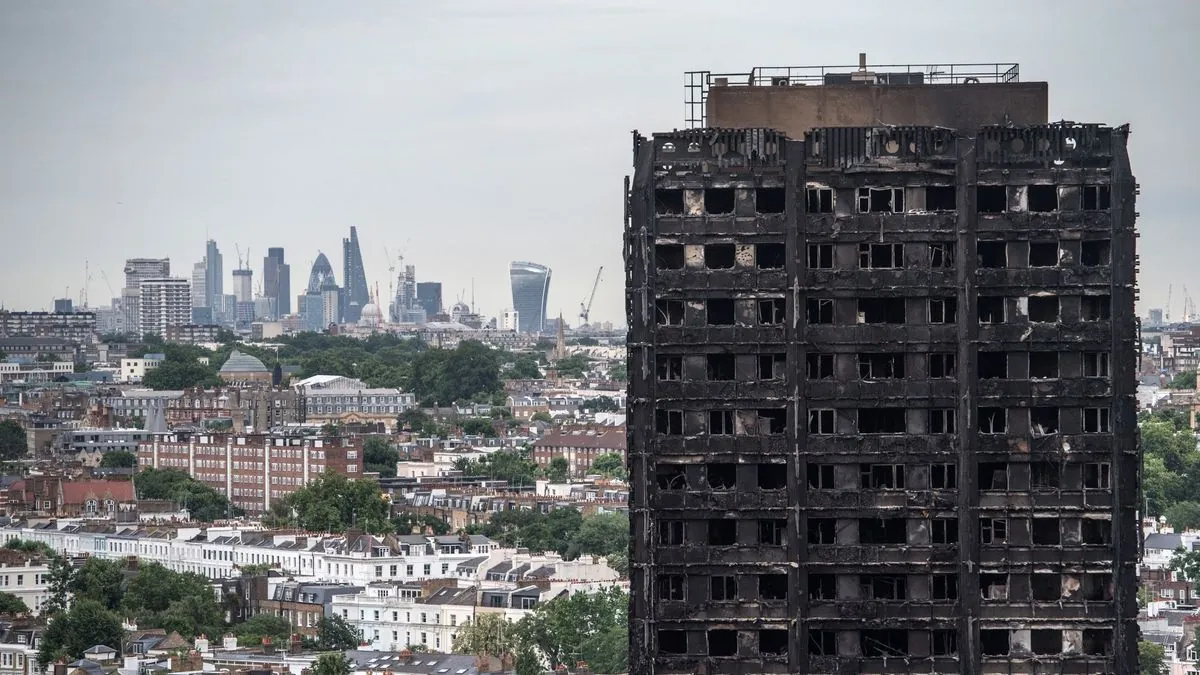Grenfell Inquiry Sparks Outrage: Medical Conditions Listed as Causes of Death
Grenfell Tower inquiry report includes pre-existing health conditions as additional causes of death for some victims, causing outrage among families and raising concerns about potential manslaughter charges.

The Grenfell Tower inquiry has ignited controversy by including pre-existing medical conditions as additional causes of death for some victims. This decision has sparked outrage among families and raised concerns about potential manslaughter charges related to the tragic fire that occurred over 7 years ago.
Kamru Miah, Steven Power, and Ali Yawar Jafari are among the victims whose causes of death include references to heart-related conditions. This inclusion has been met with strong criticism from loved ones, who argue that it undermines the primary cause of death: the fire itself.
A spokesperson for Grenfell Next of Kin expressed concern about the implications of listing pre-existing conditions alongside fire-related causes. They emphasized the severity of the fire, noting the extreme temperatures and toxic gases that victims faced.

Maria Jafari, daughter of Ali Yawar Jafari, vehemently opposed the suggestion that her father's heart condition played a role in his death. She stated, "He died because he couldn't breathe," highlighting the primary impact of the fire.
Professor Lucy Easthope, an expert in disaster recovery, described the inclusion of co-morbidities in causes of death as "unusual" and potentially "problematic" for future legal proceedings. She noted that this approach could complicate both criminal cases and civil litigation.
The inquiry's decision has reignited discussions about the legal aftermath of the Grenfell tragedy. With charging decisions not expected until late 2026 at the earliest, families are expressing frustration at the prolonged process and its impact on their pursuit of justice.
"The death certificates should record "unlawful killing", because that is what it is, unlawful. The Hillsborough families fought for years and we don't want to fight for years."
This controversy comes amidst a broader context of significant changes in UK building regulations and fire safety practices prompted by the Grenfell disaster. The tragedy, which claimed 72 lives, remains the deadliest structural fire in the UK since World War II.
The fire, which started in a faulty fridge-freezer on the fourth floor, rapidly spread due to the building's exterior cladding. Over 250 firefighters battled the blaze for approximately 60 hours before it was extinguished.
As the inquiry continues to unfold, it serves as a stark reminder of the ongoing impact of the Grenfell Tower fire on survivors, families, and the broader community. The incident has sparked a national debate on social housing, building safety, and government responsibility, with its effects still reverberating through British society today.


































